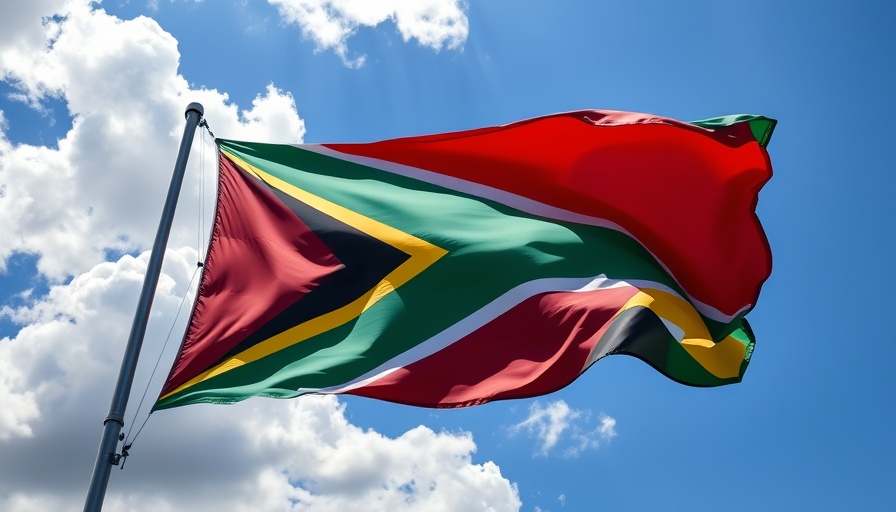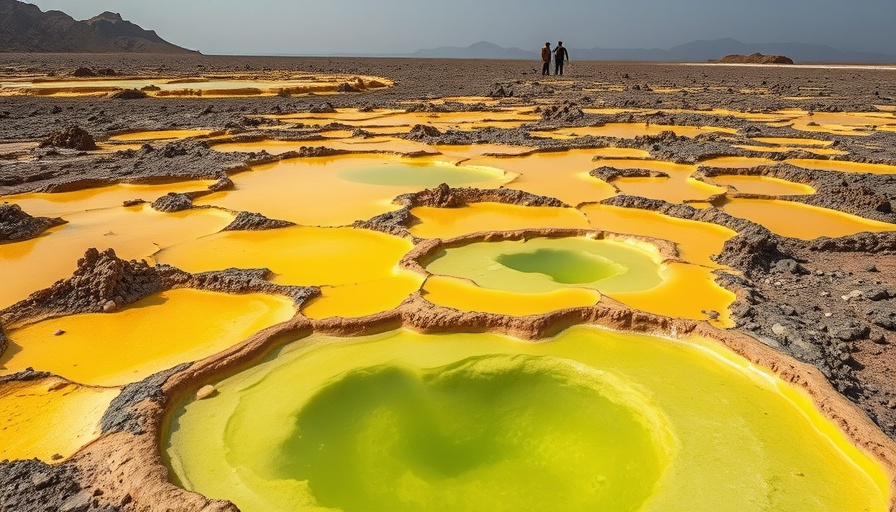
The Proposal to Rename South Africa: A Cultural Reawakening
In an evocative move to reclaim cultural identity, the African Transformation Movement (ATM) has reignited the debate surrounding South Africa's identity with a proposal to rename the country to the Republic of Azania. This proposed shift, headed to Parliament, aims to sever colonial ties and redefine what it means to be South African in a country where the legacy of colonization remains deeply embedded.
Understanding Azania: A Historical Perspective
The name 'Azania' has historical roots tracing back to the pre-colonial era. As ATM leader Vuyo Zungula points out, the term reflects a heritage and identity that resonates much more authentically with many of South Africa's indigenous populations. This rebranding seeks to challenge the narrative that has long been imposed by colonial constructs, such as the Union of South Africa established in 1910, which marginalized the voices and identities of native peoples. By reintroducing Azania, proponents argue that South Africans can reclaim their narrative and heritage.
What This Means for South Africa Travel Experiences
The transformation from South Africa to Azania could also have profound implications for tourism. Travelers may experience a heightened sense of connection to local culture and heritage, allowing them to visit unofficial historical sites and engage more meaningfully with communities. Local cuisine tours, cultural experiences, and ecotourism may see a surge as visitors seek authentic narratives that reflect the newly embraced identity. For example, destinations like Cape Town and Johannesburg could pivot their branding to showcase what Azania offers, moving away from colonial narratives towards local stories, food, and experiences.
Reactions and Counterarguments
While many support the idea, not everyone is convinced. Some critics argue that changing a name will not address deeper socio-economic issues plaguing South Africa today. The existing framework of governance, education, and economic disparities needs more than just a rebranding. These voices suggest that efforts should focus on implementing policies that promote social justice and equity, revealing a broader perspective on what it means to embody a nation.
The Global Lens: How Nations Redefine Themselves
This proposal mirrors trends seen in other former colonies aspiring to move away from their colonial legacies through names and symbols. Countries like Zimbabwe, formerly Southern Rhodesia, have similarly made shifts in nation branding to reflect their pre-colonial identities. Understanding this global trend contextualizes South Africa's potential shift, as these identities evolve within a larger narrative of recovering stolen histories.
Traveling in the Era of Azania
If the proposal is successful, travelers can expect a blend of history and contemporary experiences in Azania. Those interested in South Africa travel can anticipate itineraries rich with local cultural mosaic, blending traditional and modern influences. From backpacking through Kruger National Park to indulging in luxurious getaways in seaside towns, the evolution into Azania set a new chapter for adventure travel.
What Travelers Should Know
- Cultural Experiences: Look forward to tours that explore Azania's rich tapestry of cultures, including ethnic cuisines, music, and festivals that celebrate the history of the indigenous people.
- Adventure Travel: With new narratives in place, hiking trails, wildlife adventures, and community-based tourism opportunities may proliferate, redefining how visitors explore South Africa.
- Safety and Responsiveness: There may also be changes in travel safety protocols as the national identity shifts, making it essential for travelers to stay updated on cultural sensitivities and local dynamics.
Your Role as a Traveler
As discussions unfold in Parliament around this potential name change, travelers can play a crucial role in shaping the future of tourism in South Africa. Engaging with and understanding the implications of this proposal will help foster a sense of respect and awareness that enriches the travel experience. Exploring Azania with an open mind and a respect for its history will only enhance the journey.
The conversation about renaming South Africa as Azania is as much about reclaiming an identity as it is about imagining a future shaped by inclusivity and recognition of the past. Whether or not this proposal leads to an official name change, it invites all of us to reflect on the significance of names and the histories they represent.
 Add Row
Add Row  Add
Add 




Write A Comment